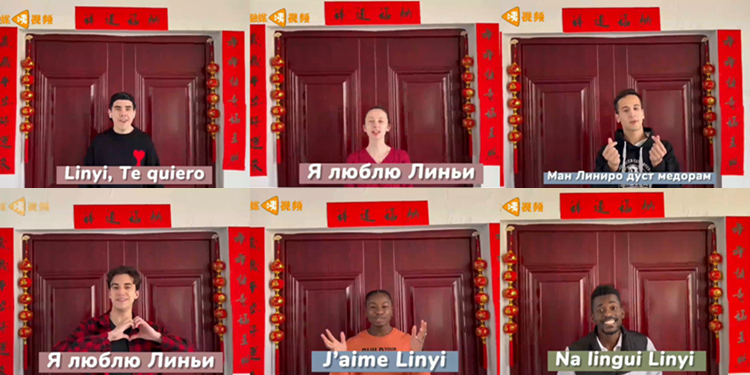双语硕硕说 | 当Laba遇上Major Cold,“胃暖”不怕天寒


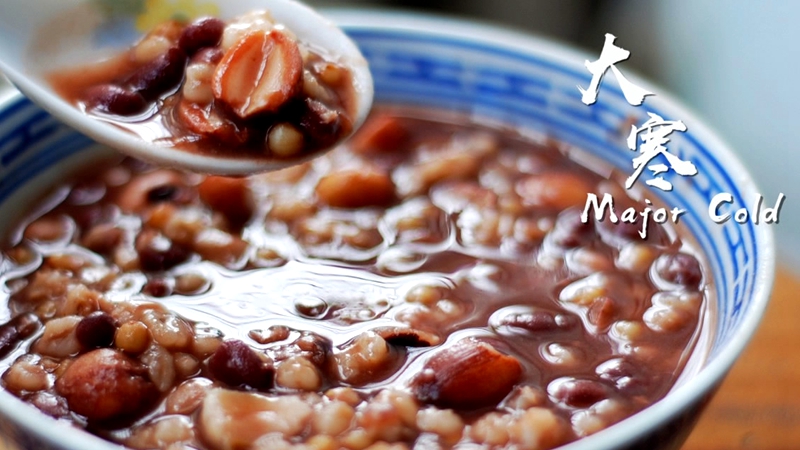
今天是腊月初八,同时又是二十四节气之大寒。虽然“小寒大寒冻成一团”,但是一碗热腾腾的美味腊八粥肯定能给天寒地冻送来丝丝温暖,最起码是“胃暖”。本期小破说,咱们就应景地来一篇“腊八”与“大寒”之英文解读。
The Laba Festival, falling on the 8th day of the 12th month on the Lunar Calendar, is a traditional Chinese festival worshiping harvest and marking the start of the Chinese New Year celebration. This year, the Laba Festival falls on the same day as the Major Cold, which is the last of China's 24 solar terms.
关于大寒 The Major Cold
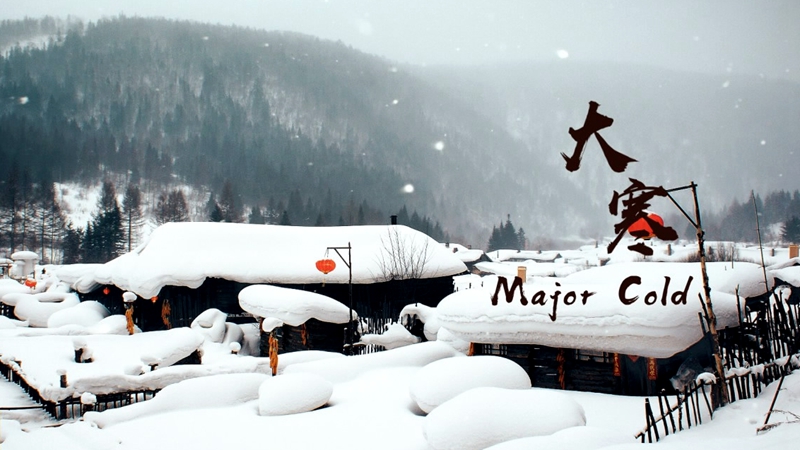
大寒后,神州大地又将迎来新一年的节气轮回,天气也渐渐回暖。大寒节气的英文名为Major Cold。《授时通考•天时》引《三礼义宗》中记载:“寒气之逆极,故谓大寒。”此时是中国大部分地区最冷的时期。
The traditional Chinese lunar calendar divides the year into 24 solar terms. Major Cold, also known as “Dahan” in Chinese, is the last solar term of the winter and also the whole year. It usually falls around January 20, not far away from the Spring Festival, which falls on January 20 this year.
During this time of year, people in ancient China preferred food with a warm and placid nature, in order to get the nutrition required during the cold days.
大寒时节,雨雪和冰冷的天气对人们的生活产生了很大的影响。这个节气代表着24节气的结束,也标志着冬天的结束。大寒总是在农历的年底来临。大寒过几天,就是春节了。人们忙着采买年货。这个节气充满了对家庭团聚和对新开始的美好期待。
Around days after Major Cold, comes the Spring Festival. In this period, snow, rain and icy cold weather exert a big influence on people's lives. This term represents the end of 24 solar terms and also marks the end of winter. People get busy with buying new things, salting the meat and preparing New Year good. This solar term is consequently imbued with happy expectations of family reunions and a fresh new start.
关于腊八 The Laba Festival

中国农历的十二月初八即为腊八节,由于我们习惯把农历十二月称为腊月,“腊八节”的名字就是这么来的。
Laba Festival, also simply called "Laba," comes on the eighth day of the twelfth month of the Chinese lunar year. The festival has this name because the twelfth month is also called "la" month in Chinese while the number eight is pronounced "ba."
在我国北方有 “小孩小孩你别馋,过了腊八就是年”之说,过腊八意味着拉开了过年的序幕。
Since it's in the last month of the lunar year, the festival implies saying goodbye to the old and embracing the new, and often regarded as a warm-up celebration for the upcoming Spring Festival.
本为佛教纪念释迦牟尼佛成道之节日,后逐渐也成为民间节日。
Laba Day is also Bodhi Day in the Buddhist tradition. It's said that Shakyamuni Buddha, the founder of Buddhism, attained enlightenment on this day. Thus, the day is one of the grandest festivals for Buddhists.
提到腊八节,对于咱们以食为天的中国人来说,主角腊八粥必须C位亮相。
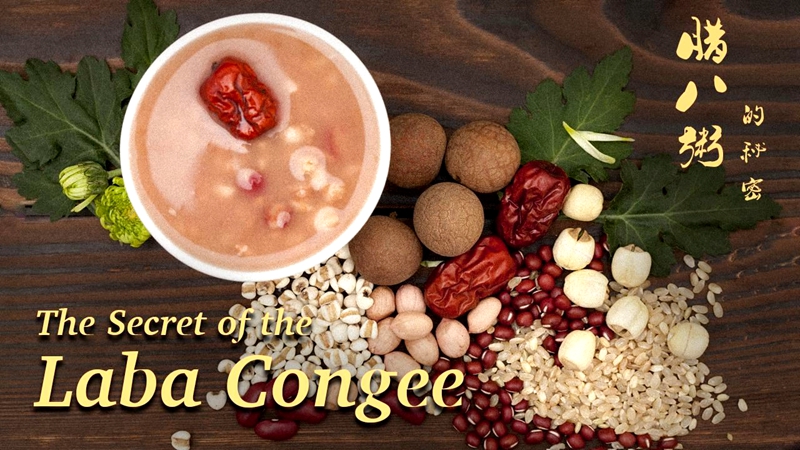
腊八粥的最早文字记载在宋代。南宋吴自牧《梦梁录》载:“此月八日,寺院谓之腊八。大刹等寺,俱设五味粥,名曰腊八粥。”
The tradition of eating Laba congee during the festival could be traced back to the Song Dynasty (960-1279). From the imperial court to ordinary people, cooking the congee was a seasonal must. They not only cooked the dish for their own family members, but also sent it to others as a gift.
关于腊八粥(Laba porridge)的具体做法,硕硕在此按下不表,相信广大资深吃货朋友们随便露一手都能碾压我这个厨房白痴,咱就不自取其辱了。所以今天,咱只是简单介绍一下英文中关于“粥”的几种常见说法。
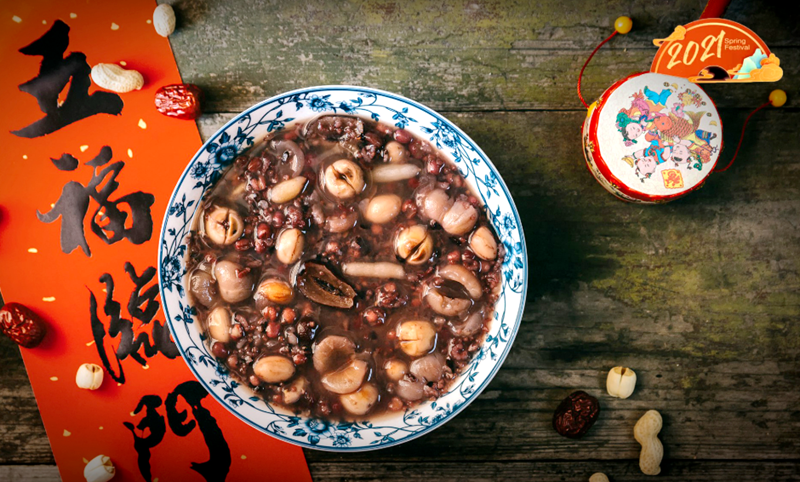
“粥” porridge /'pɔrɪdʒ/(美式读音)or /'prɪdʒ/(英式读音)
“粥”最常见的英文说法就是porridge,中小学教科书的单词表中咱们已经见识过了。英文词典对该词给出的释义为:a soft food made by boiling meal of grains or legumes in milk or water until thick,更贴近于我们理解的燕麦粥。
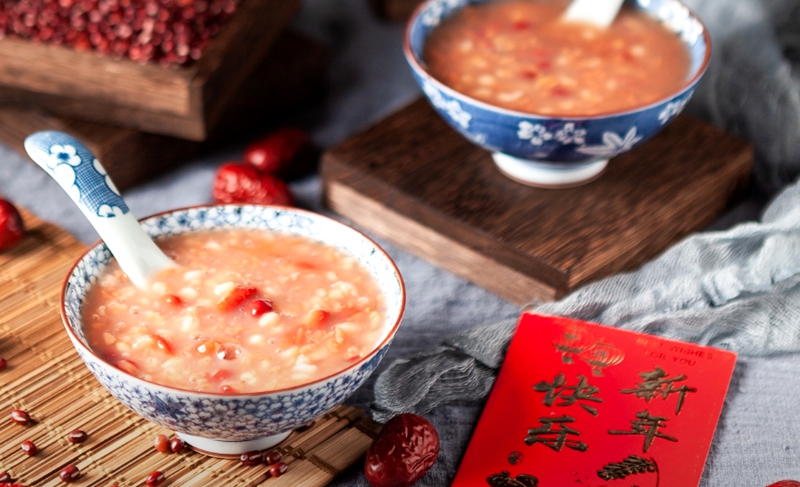
“粥” gruel /'ɡruəl/ (美式读音)or /'ɡruːəl/(英式读音)
gruel也是粥,不过指“稀粥”,特别是过去穷人或病人吃的一种稀薄的粥:thin oatmeal that was eaten in the past by poor or sick people。
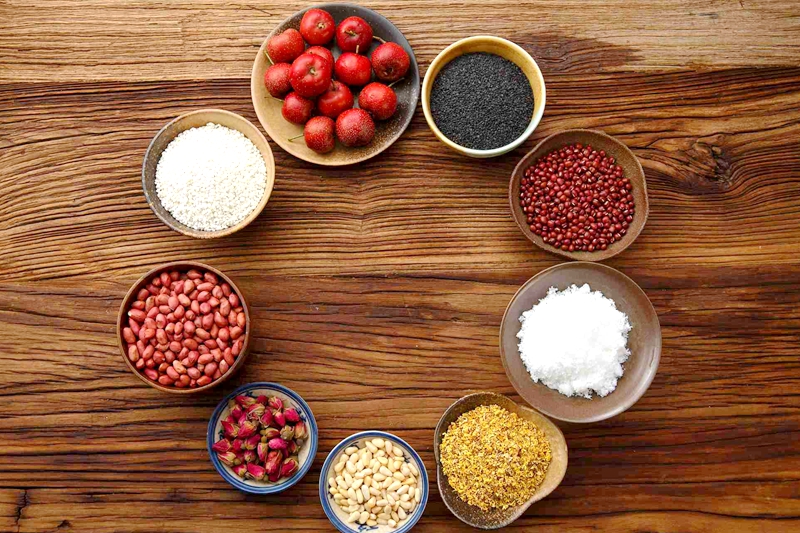
“粥” congee /ˈkɑːn.dʒi/(美式读音)or /ˈkɒn.dʒi/(英式读音)
congee一词有些词典并没有收录,剑桥词典对其解释为:a kind of thick Chinese soup made with rice,更好理解的翻译是“大米粥”,即我们中国传统意义上的粥。硕硕进一步查找资料后得知,这个词来自斯里兰卡的tamil语,主要用来指米粥,和中国的粥最为接近,所以在描述中国人喝的粥时我更倾向于用congee这个词。
再补充几个其他比较常见的粥:小米粥 millet( /'mɪlɪt/ 谷子,小米,黍类) gruel;江米粥 glutinous(/ˈɡluːtənəs/ 很黏的,黏性很大的)rice porridge;燕麦粥 oatmeal (/ˈəʊtmiːl/ 燕麦片)porridge;八宝粥 eight-treasured rice porridge。
小伙伴们快来评论区晒一波今天喝了什么粥,或者交流一下喝粥心得!
文/ 硕硕
本端所刊登的临沂日报报业集团旗下媒体作品版权,均为临沂日报报业集团所属媒体及作者或页面内声明的版权人所有。未经临沂日报报业集团相应媒体授权,任何网站或组织不得以任何形式转载、复制、编辑或发布。违反上述声明者,临沂日报报业集团所属媒体将追究其相关法律责任。
不良信息举报电话:0539-8966111
